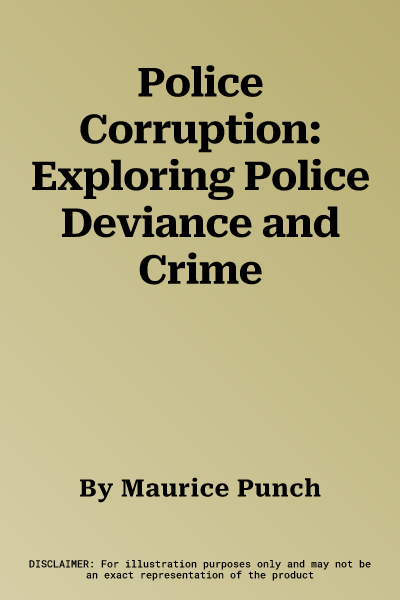Policing and corruption are inseparable. This book argues that
corruption is not one thing but covers many deviant and criminal
practices in policing which also shift over time. It rejects the 'bad
apple' metaphor and focuses on 'bad orchards', meaning not individual
but institutional failure. For in policing the organisation, work and
culture foster can encourage corruption. This raises issues as to why do
police break the law and, crucially, 'who controls the controllers'?
Corruption is defined in a broad, multi-facetted way. It concerns abuse
of authority and trust; and it takes serious form in conspiracies to
break the law and to evade exposure when cops can become criminals.
Attention is paid to typologies of corruption (with grass-eaters,
meat-eaters, noble-cause); the forms corruption takes in diverse
environments; the pathways officers take into corruption and their
rationalisations; and to collusion in corruption from within and without
the organization. Comparative analyses are made of corruption, scandal
and reform principally in the USA, UK and the Netherlands.
The work examines issues of control, accountability and the new
institutions of oversight. It provides a fresh, accessible overview of
this under-researched topic for students, academics, police and criminal
justice officials and members of oversight agencies.

